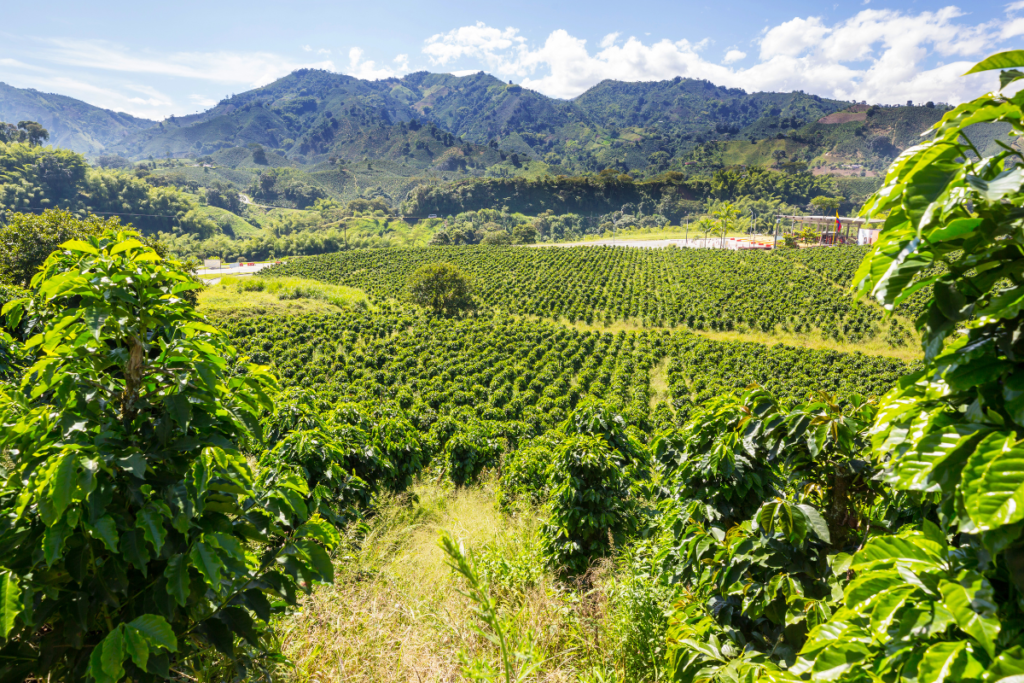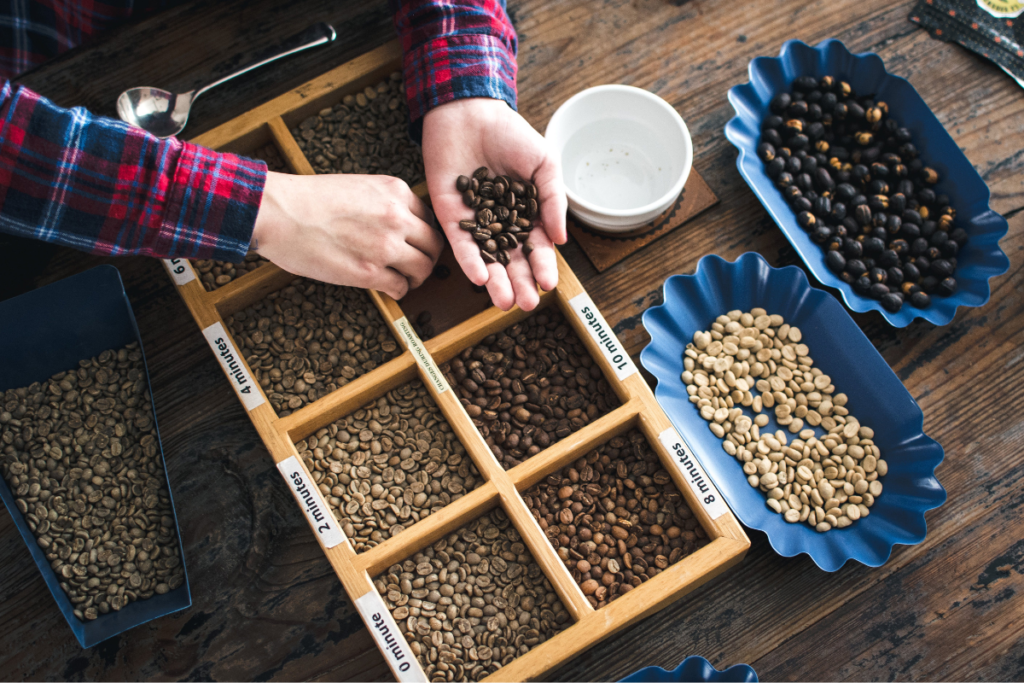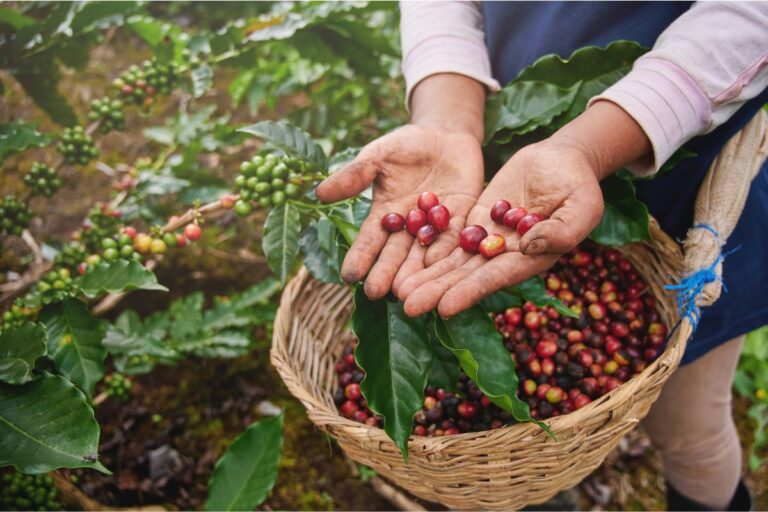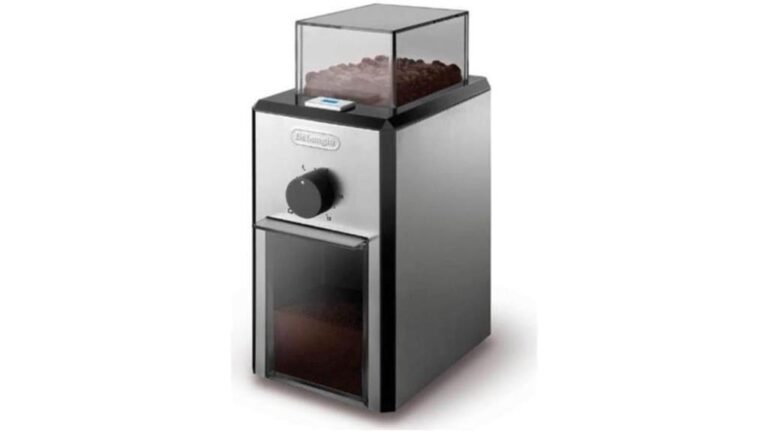Specialty Vs. Commercial Coffee
The world of coffee is as complex as it is captivating, encompassing an array of flavors, aromas, and experiences that appeal to a diverse global audience. At the heart of this diversity lies a fundamental distinction: the difference between specialty and commercial coffee.
This differentiation is not just a matter of branding or marketing; it’s rooted in the very essence of the beans themselves, their growing conditions, and the meticulous processes that transform them from raw fruits to the aromatic beverage cherished by millions.
Specialty coffee represents the pinnacle of quality, defined by its superior flavor, unique aroma profiles, and the exceptional care taken at every stage of its production. From the choice of bean varieties to the specific microclimates in which they are cultivated, specialty coffee is a testament to the art and science of coffee making.
Commercial coffee caters to a broader market, prioritizing consistency, affordability, and accessibility. It’s the everyday coffee that fuels the masses, with a flavor profile designed to appeal to a wide range of palates.
While it may lack the nuanced flavors of its specialty counterpart, commercial coffee plays a crucial role in the global coffee industry, offering a reliable and familiar coffee experience.
Understanding these differences is not just about taste preference; it’s about appreciating the journey of the coffee bean from a remote farm to the coffee cup. It involves recognizing the efforts of farmers, roasters, and baristas in shaping the coffee experience.
Specialty Coffee

The term “specialty coffee” has evolved to represent more than just a high-quality brew; it embodies an entire culture of coffee appreciation, focusing on the art and science behind coffee production.
To understand what sets specialty coffee apart, we must examine its definition, the factors that classify a coffee as specialty, and the unique characteristics that distinguish it in the global coffee landscape.
Definition of Specialty Coffee
Specialty coffee refers to coffee beans that have been graded and evaluated as superior quality by expert tasters, known as Q-graders. These beans are often sourced from specific microclimates and are treated with meticulous care throughout their journey from seed to cup.
The Specialty Coffee Association (SCA) plays a significant role in setting the standards for what qualifies as specialty coffee, focusing on aspects like bean quality, flavor profile, and sustainable production practices.
Factors Classifying Coffee as ‘Specialty’
Bean Quality:
Specialty coffee beans are required to have minimal defects and consistent size and shape, which contribute to a uniform roast and extraction.
They are often handpicked to ensure that only the ripest cherries are harvested, leading to a higher quality end product.
Growing Conditions:
The environment where specialty coffee is grown plays a crucial role. These beans are typically cultivated at higher altitudes, which slows the bean’s maturation process, allowing more complex flavors to develop.
Factors like soil quality, climate, and altitude all contribute to the distinct characteristics of specialty coffee. The microclimates of regions like Ethiopia, Colombia, and Kenya, for instance, produce beans with unique flavor profiles that are highly prized in the specialty coffee world.
Flavor Profiles:
Specialty coffee is renowned for its depth and complexity of flavor. Unlike commercial coffee, which often has a more uniform taste, specialty coffees can exhibit a wide range of flavors, from fruity and floral to chocolaty and nutty, depending on their origin and processing method.
The process of cupping, a standardized method of coffee tasting, is used to evaluate these coffees. Coffees that score 80 points or above on a 100-point scale are typically classified as specialty.
The Experience of Specialty Coffee
Enjoying specialty coffee is an experience that engages all senses. From the aroma that hints at its origin and processing to the first sip that reveals its flavor profile, specialty coffee offers a journey of discovery.
It’s not just about the caffeine content but about appreciating the story behind each cup – the terroir, the care of the farmers, and the artistry of the roasters.
Specialty coffee, therefore, is more than just a beverage; it’s a celebration of diversity, quality, and craftsmanship. It represents a commitment to excellence and sustainability, from the farm to the final cup.
Weird Coffee Tip: Specialty coffee is considered superior to commercial coffee by most enthusiasts, but it can be difficult to know where to get it. If you want to try specialty coffee for yourself, this article can show you where to get it:
Where Can You Get Specialty Coffee?
Commercial Coffee

To appreciate the full spectrum of the coffee world, it’s essential to understand commercial coffee and how it contrasts with specialty coffee.
Commercial coffee, often the more familiar choice for the average consumer, has its own set of defining characteristics, growing practices, and flavor profiles, catering to a different segment of the coffee market.
Definition and Characteristics of Commercial Coffee
Commercial coffee typically refers to coffee that is mass-produced and widely available. This type of coffee is often sourced from multiple origins and blended to create a consistent flavor profile that appeals to a broad audience.
The primary focus in commercial coffee production is on efficiency, affordability, and consistency, rather than the distinct flavors and unique qualities emphasized in specialty coffee.
Common Growing Practices for Commercial Coffee
Large-Scale Cultivation:
Unlike the small-scale, often high-altitude farms for specialty coffee, commercial coffee is usually grown in large plantations, often at lower altitudes. These conditions allow for easier mechanization and harvesting, which are crucial for mass production.
Focus on Yield and Efficiency:
Commercial coffee growers prioritize yield and efficiency. This often involves using robust varieties like Robusta, which are hardier and more resistant to pests and diseases than the more delicate Arabica.
Standardized Processing:
The processing of commercial coffee is typically more standardized than specialty coffee. This uniform approach helps maintain a consistent product that meets the expectations of the broader market.
Flavor Characteristics and Consumer Perception
Flavor Profile:
Commercial coffee tends to have a more straightforward flavor profile compared to the nuanced and varied tastes of specialty coffees. The flavors are generally stronger and more bitter, often with a pronounced roasted character.
This is partly due to the higher proportion of Robusta beans and the darker roasting practices commonly used in commercial coffee production.
Consumer Perception:
For many consumers, commercial coffee is synonymous with convenience and familiarity. It’s the kind of coffee that’s readily available and consistent, making it a staple in many households and offices.
While it may lack the exotic and complex flavors of specialty coffee, its approachable profile and affordability make it a popular choice for everyday consumption.
In summary, commercial coffee plays a significant role in the global coffee market by providing an accessible and reliable option for many coffee drinkers.
While it differs from specialty coffee in terms of production practices, bean quality, and flavor complexity, it fulfills the demand for a consistent and familiar coffee experience.
Understanding this contrast is crucial for both consumers and professionals in the coffee industry, as it highlights the diversity and range of choices available in the world of coffee.
Growing Conditions: Specialty Vs. Commercial Coffee

The growing conditions of coffee beans are pivotal in shaping their final flavor and quality. There’s a significant contrast between the conditions preferred for growing specialty coffee and those typical for commercial coffee.
Altitude and Climate
Specialty Coffee: Generally grown at higher altitudes (between 1,200 and 2,200 meters), where cooler temperatures and varying microclimates contribute to slower bean maturation. This slow growth allows for the development of more complex sugars in the bean, resulting in a richer and more nuanced flavor profile.
Commercial Coffee: Often grown at lower altitudes, where the warmer climate accelerates the growth cycle. This can lead to a reduction in the complexity of the bean’s flavor profile but enables a higher yield and easier mechanization of harvesting.
Soil Quality and Farming Practices
Specialty Coffee: The soil is typically rich in nutrients and is often found in mountainous, volcanic regions. Specialty coffee farmers may use sustainable practices like shade-grown methods, which not only protect the coffee plants but also support local ecosystems.
Commercial Coffee: Grown in a variety of soil conditions, often with the aid of chemical fertilizers to maximize yield. Large plantations may prioritize quantity over environmental considerations.
Harvesting Techniques
Specialty Coffee: Beans are usually handpicked to ensure that only ripe cherries are harvested. This selective picking is labor-intensive but crucial for maintaining quality.
Commercial Coffee: Often harvested using mechanized methods, which can result in a mix of ripe and unripe cherries. This can lead to a less consistent flavor profile in the final product.
Impact Of Growing Conditions On Flavor and Quality

Flavor Complexity and Depth
The meticulous attention to growing conditions in specialty coffee results in beans with a wide range of flavors, from bright and fruity to rich and chocolaty. The specific conditions of each microclimate impart unique characteristics to the beans, contributing to the diverse flavor profiles celebrated in specialty coffee.
The growing conditions for commercial coffee, while efficient, often result in a more uniform flavor profile. The focus on yield and efficiency can lead to a reduction in the depth and complexity of flavors.
Quality and Consistency
Specialty coffee beans, with their stringent quality control and selective harvesting, often boast a higher quality with fewer defects. This results in a more consistent and refined cup of coffee.
Commercial coffee, while consistent in flavor due to blending and standardized processing, may lack the nuanced qualities of specialty beans. The focus on volume can sometimes lead to a compromise in bean quality.
The growing conditions of coffee beans play a crucial role in determining the final quality and flavor profile of the coffee. Specialty coffees, with their focus on high-altitude, nutrient-rich soils, and careful harvesting techniques, offer a complex and diverse flavor experience.
Commercial coffees, grown under more standardized and efficiency-driven conditions, provide a consistent and familiar taste that appeals to a broad audience. Understanding these differences helps in appreciating the vast world of coffee and the effort that goes into producing every cup.
Flavor Profiles: Specialty vs. Commercial Coffee

The distinction between specialty and commercial coffee is most tangibly experienced in their flavor profiles. These differences are not just a matter of subjective taste but are deeply rooted in the bean variety, processing methods, and brewing techniques.
This section offers an in-depth analysis of these flavor differences and explores how bean variety and processing contribute to the development of these distinct flavor characteristics.
In-Depth Analysis of Flavor Differences
Specialty Coffee Flavors:
Specialty coffees are celebrated for their wide range of complex and nuanced flavors. These can range from bright, acidic, and fruity notes to sweet, floral, and chocolatey undertones.
The specific flavor profile of a specialty coffee is heavily influenced by its origin, with different growing regions imparting unique characteristics. For instance, African coffees are often known for their floral and fruity notes, while Latin American coffees might have a more nutty and chocolaty profile.
The complexity in specialty coffee is also marked by its balance and clarity. Each sip can reveal multiple layers of flavors, changing as the coffee cools.
Commercial Coffee Flavors:
Commercial coffees, in contrast, tend to have a more uniform and straightforward flavor profile. These are often stronger and more robust, with a pronounced bitterness that is characteristic of a heavier roast.
The flavors in commercial coffee are less about the subtleties of origin and more about providing a consistent, bold taste that stands up well to cream and sugar, making it appealing to a broad audience.
There is often less variation in the flavor profile of commercial coffee, making it more predictable and familiar to the average consumer.
Bean Variety
The type of bean plays a significant role in the flavor of the coffee. Arabica beans, typically used in specialty coffees, have a wider range of flavors and are generally smoother and sweeter. Robusta beans, more common in commercial blends, are stronger, more bitter, and have a higher caffeine content.
The genetic variety of the bean, even within the Arabica category, can influence the flavor. Beans from different regions, or even different farms within the same region, can have distinct flavor notes due to variations in their genetic makeup.
Processing Methods
The way the coffee cherry is processed after harvesting greatly impacts the final flavor of the bean. Specialty coffees often undergo careful processing methods like washed, natural, or honey, each imparting different flavors to the bean.
Washed coffees, for instance, tend to have cleaner, more acidic profiles, while natural or dry-processed coffees can have more fruity and wine-like qualities.
Commercial coffees might not undergo these specialized processing methods, focusing instead on a more standardized approach that prioritizes efficiency and consistency over flavor development.
The flavor profiles of specialty and commercial coffees are a direct result of the choices made at every step of the coffee production process, from the variety of the bean to the way it is processed and roasted.
Understanding these nuances not only enhances one’s appreciation of coffee but also informs choices about what kind of coffee might suit one’s palate best.
Whether savoring the delicate complexities of a single-origin specialty brew or enjoying the robust familiarity of a commercial blend, each cup offers a unique window into the vast and varied world of coffee.
Summary of Key Differences

- Bean Quality and Variety: Specialty coffee is characterized by high-quality Arabica beans with minimal defects and unique flavor profiles, while commercial coffee often uses a blend of Arabica and Robusta beans, focusing on consistency and affordability.
- Growing Conditions: Specialty coffee thrives in specific microclimates at higher altitudes, which contributes to its complex flavor development. Commercial coffee is usually grown in more varied and accessible conditions, prioritizing yield and efficiency.
- Flavor Profiles: The flavor of specialty coffee is diverse and nuanced, with a wide range of notes influenced by its origin and processing. Commercial coffee, in contrast, offers a more uniform and robust flavor, catering to a broader audience.
- Processing and Roasting: Specialty coffees undergo meticulous processing and roasting to highlight their unique characteristics, whereas commercial coffees are processed and roasted in a way that ensures consistency on a large scale.
For consumers, recognizing these distinctions can transform their coffee experience. It allows them to make informed choices based on their flavor preferences, the type of coffee experience they seek, and their values regarding sustainability and quality. It also fosters a deeper appreciation for the journey of the coffee bean, from the farm to the cup.
For industry professionals, this knowledge is fundamental. It informs every aspect of their work, from sourcing and roasting beans to marketing and educating consumers. Understanding these differences is key to catering to diverse consumer preferences and can drive innovation and excellence in the industry.
The world of coffee is as intricate as it is vast. Each bean tells a story of its origin, its journey, and the people behind it. Whether one prefers the complex and nuanced flavors of specialty coffee or the familiar and consistent taste of commercial blends, this understanding enriches the coffee experience, connecting us more deeply to this extraordinary beverage that unites people across the globe.
Conclusion
The exploration of specialty versus commercial coffee reveals a world rich in diversity, complexity, and passion. Understanding the key differences between these two categories is crucial not only for consumers who enjoy their daily cup but also for professionals within the coffee industry.
This knowledge enhances the appreciation of coffee and informs decisions from bean selection to brewing techniques.






